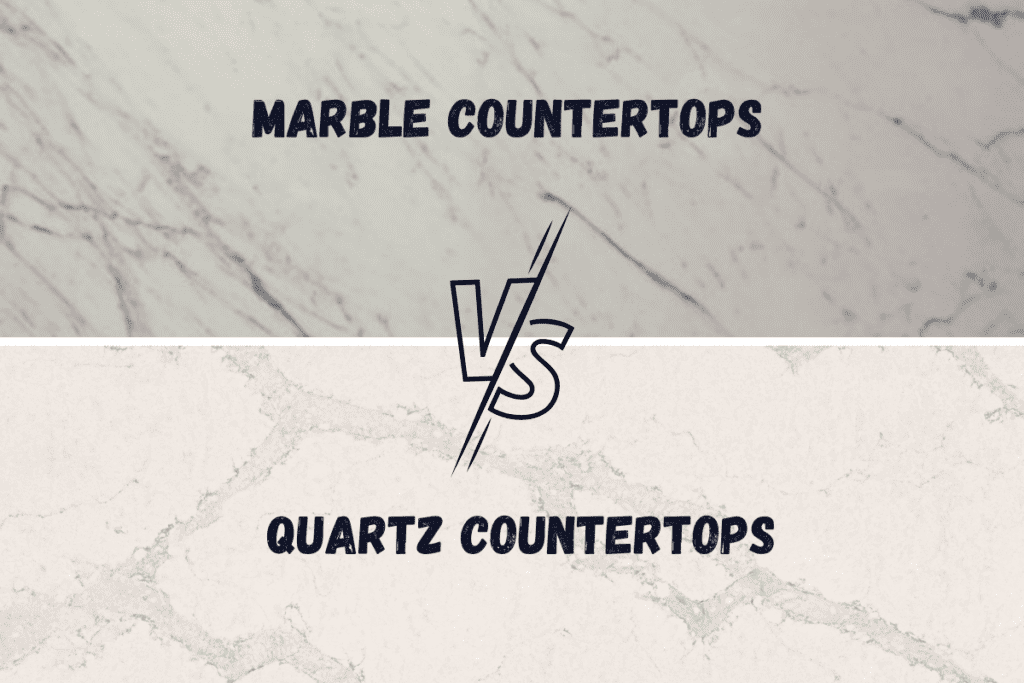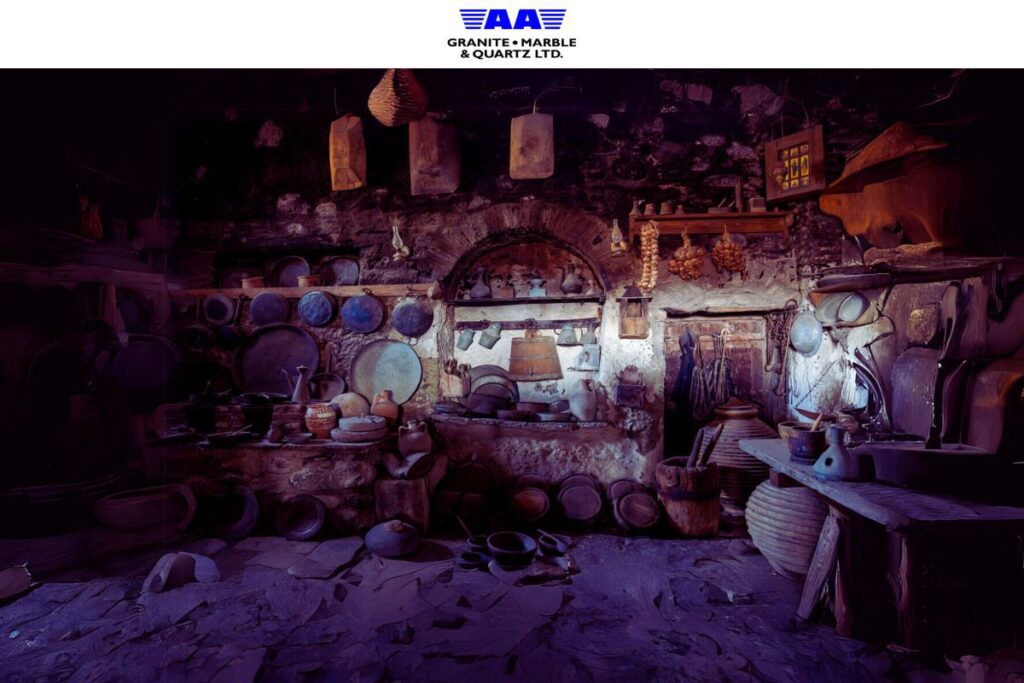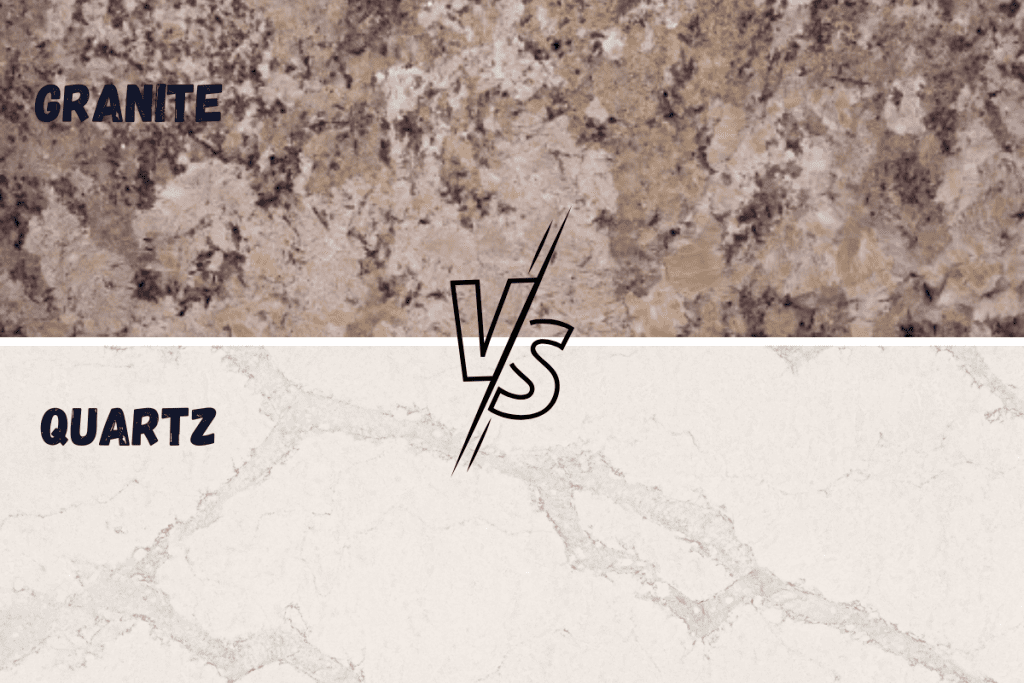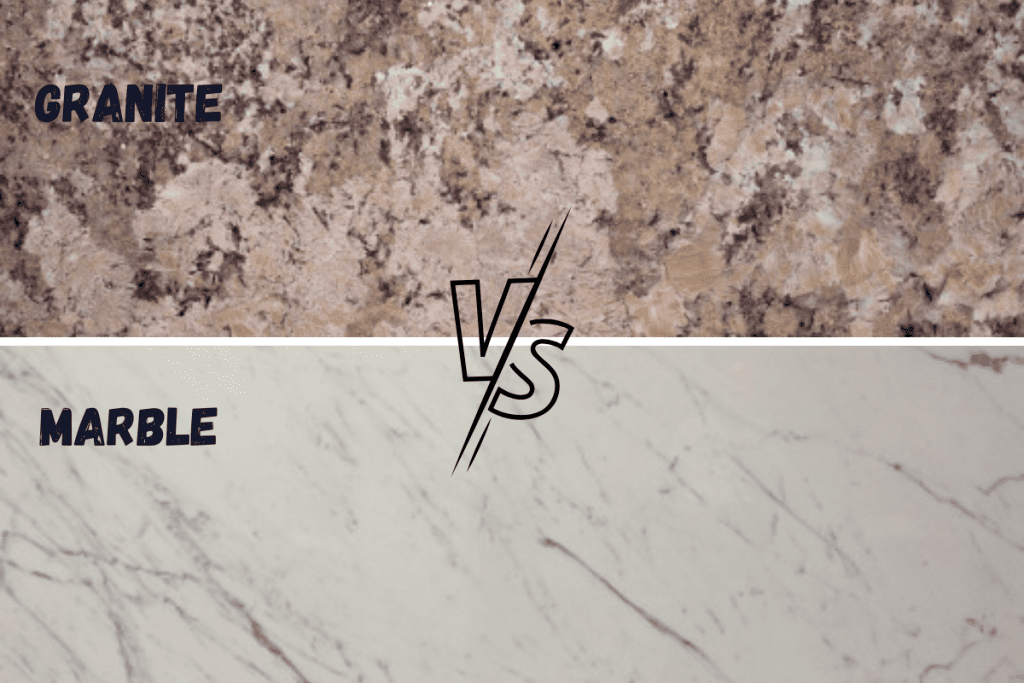Juggling between quartz vs marble countertops for your next home renovation? That’s a tough choice. Arguably, the two most common materials for kitchen countertops are quartz and marble. And the reason is simple: stone, whether manmade or engineered to appear authentic, are aesthetically pleasing to homeowners.
If you’re considering installing a new countertop or wondering which kind is ideal, this post will review the differences between marble vs marble countertops, their prices, and what you should consider to make the best decision.
Ultimately, the choice is yours, but if you’re looking for something that’s easy to maintain, durable and you don’t want to spend too much, the best choice is quartz.
TLDR, Key Takeways:
- The Deciding Factor; When it comes to choosing between Marbles appeal and Quartzs lasting beauty, with minimal upkeep consider the practicality of quartz for Calgarys busy kitchens.
- Stain Resistance Showdown; In a high traffic kitchen environment the decision between marbles vulnerability to stains and quartzs resilient non porous surface becomes crucial.
- Investment for the Future; While marble offers a end and opulent look savvy Calgary homeowners might find that quartz is the cost efficient choice due, to its lower lifetime maintenance costs and durability.
Quartz vs Marble Countertops: What Are They Made of?
Let’s take a look at what marble and quartz are first. Marble is natural stones in various colours (white, gray, and pink, to name a few). Because natural marble produces a beautiful, luxurious effect in bathrooms and kitchens, it’s a very popular choice.
The characteristic quality of the marble stone is the veining pattern that gives the countertop a timeless elegance and natural beauty. Some examples include Calacatta marble and Carrara marble. Note, however, that because marble slabs must be handpicked and selected, it can be challenging to match them up if you’re working with a larger area.
Quartz is synthetic. It’s made from quartzite, a stone found in the soil, and combined with powder and substances like resin and pigments to create the illusion of natural stone.
The mix is approximately 90% quartz mixed with 10% resins and pigments. The benefit of the engineered stone is, on the one hand, it makes a very durable surface. On the other hand, there’s a lot more choice: pigments can be added for homeowners looking for specific designs or colours.
Alright, so we’ve learned marble is beautiful, and quartz is versatile. But you might be thinking, which is the best choice? Well, we can determine ‘the best’ by what exactly suits you in terms of durability, drawbacks, cost, and required maintenance . Let’s look at them more in the paragraphs that follow.
Measuring Durability: Quartz or Marble?
You’ll want to factor in durability because this is the biggest issue with marble. Below are some of the common problems with marble. Read carefully before you decide.
Marble Absorbs
Marble is made from porous material, meaning it can absorb liquids easily. That means, in short, staining is highly probable. If you have a glass of red wine and say it spills, for example, a dark red colour very well might remain there.
Etching and Stun Marks
Marble is also made from calcite, which reacts with acids and confident substances. So, things like lemon juice or tomato sauce may create etches or dull sports.
Also, marble is susceptible to what is known as stun marks. Say you were cooking something with a cased iron skillet, and you dropped the skillet on the countertop. That will cause a white mark on the countertop, known as a stun mark.
Chipping and Heat
Marble is softer than quartz, meaning it might chip easier than quartz from knives or glass. Both are heat-resistant, though. Quartz resists temperatures of up to 400 degrees Fahrenheit, while Carrara marble has a higher heat threshold of 480 degrees) Make sure that you put down a heating pad before setting down a hot pan or pot over the counter, whether using marble or quartz.
Quartz
You won’t experience these problems with quartz. Quartz is more durable and non-porous. That means quartz tabletops won’t absorb liquids and moisture.
Are The Drawbacks of Marble Manageable?
Etching and starching, while sounding unpleasant, is not necessarily as bad as it sounds. While the first scratch might seem like it stands out, every mark made after that tends to ‘soften’ the effect and, according to many, makes the surface appear more natural when you get close.
And besides, there are some measures you can take to lessen the appearance of starches and stains by maintaining the marble.
What do you have to do? Let’s take a look by exploring more about maintaining marble and quartz countertops.
Maintenance: Quartz vs Marble Countertops
Use a Sealer
For marble countertops, you’ll need to use a sealer regularly, as that’ll help to make sure if you spill something, you have some time to clean it up before the stain seeps in. Home Depot has a cheap PH neutral option for CAD $15.38 that’s available online. Keep in mind that because sealers break down, you must apply it reasonably regularly. If you don’t seal it every year to six months, it can cause irreversible etching and discoloration. Note that acidic materials may penetrate the surface even if you use a sealer.
Choose Household Cleaners Carefully
Marble can also be harmed by certain household cleaners. So, use a PH-neutral cleanser or a cleaning product to clean natural stone. If you don’t, you might risk etching and dulling.
If you choose quartz, you won’t need a sealant or special cleaners because quartz countertops require less maintenance. To clean a quartz countertop, wipe it down with mild soap and a washcloth.
So, suppose you’re looking for something that doesn’t require much care, and you won’t have to worry about scratches or damages that will happen with everyday use. In that case, consider quartz countertops since they don’t require as much upkeep.
Now that you know how to maintain the countertops, you might be wondering what will this cost you? The price does differ, so let’s take a look more about the cost below.
Which Is More Affordable: Quartz or Marble Countertops?
Quartz is definitely the more budget-friendly option. The price will change depending on factors like location and the project size. However, generally speaking, quartz is about 25% cheaper than marble. Cost factors make quartz countertops a more popular choice for many homeowners. Average cost per square foot changes from around $55-$200.
The price of marble countertops per square foot can be a lot higher than quartz. It depends on the type of stone and quality you choose. Most estimates put marble cost per square foot around $60-$200. Factors that figure in include labor involved, project size, and location.
A good suggestion is to not discount marble or quartz based solely on your idea of the expenses involved. Talk to an expert to determine the actual product costs available to you.
At the end of the day, what should I choose?
Quartz vs Marble Countertops: What’s the Verdict?
Countertops made of marble or quartz can be an exquisite addition to your kitchen. Please keep in mind the pros and the cons when making your choice though. Marble countertops could become damaged and etched quickly. In contrast, a quartz countertop will likely look stunning year after year with little to no upkeep needed.
However, if you’re looking for a unique design and natural beauty and you are okay investing the time and money to maintain the countertop, then the best choice would be marble, of course. Make the best decision for your house, considering your needs and budget.




